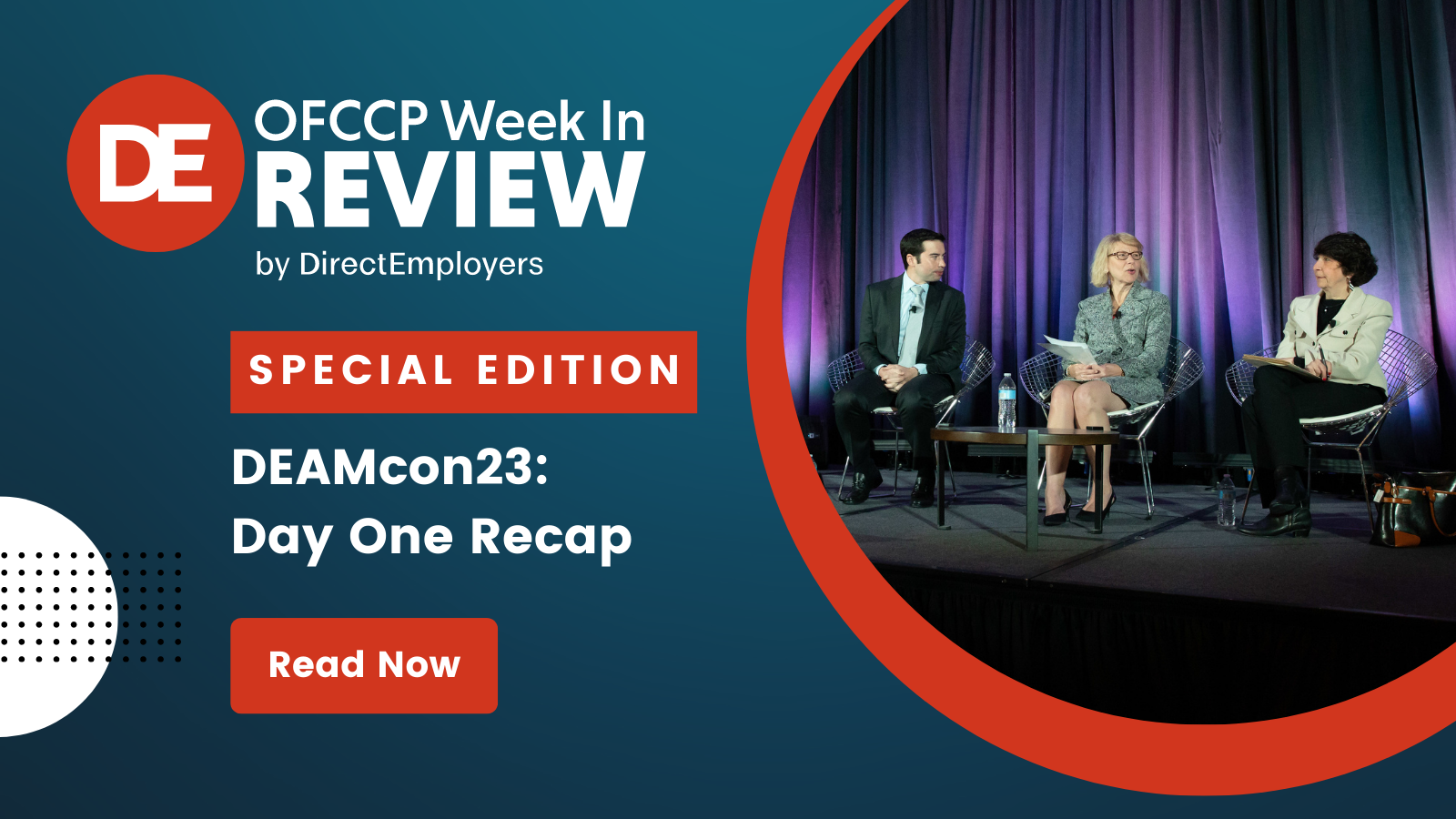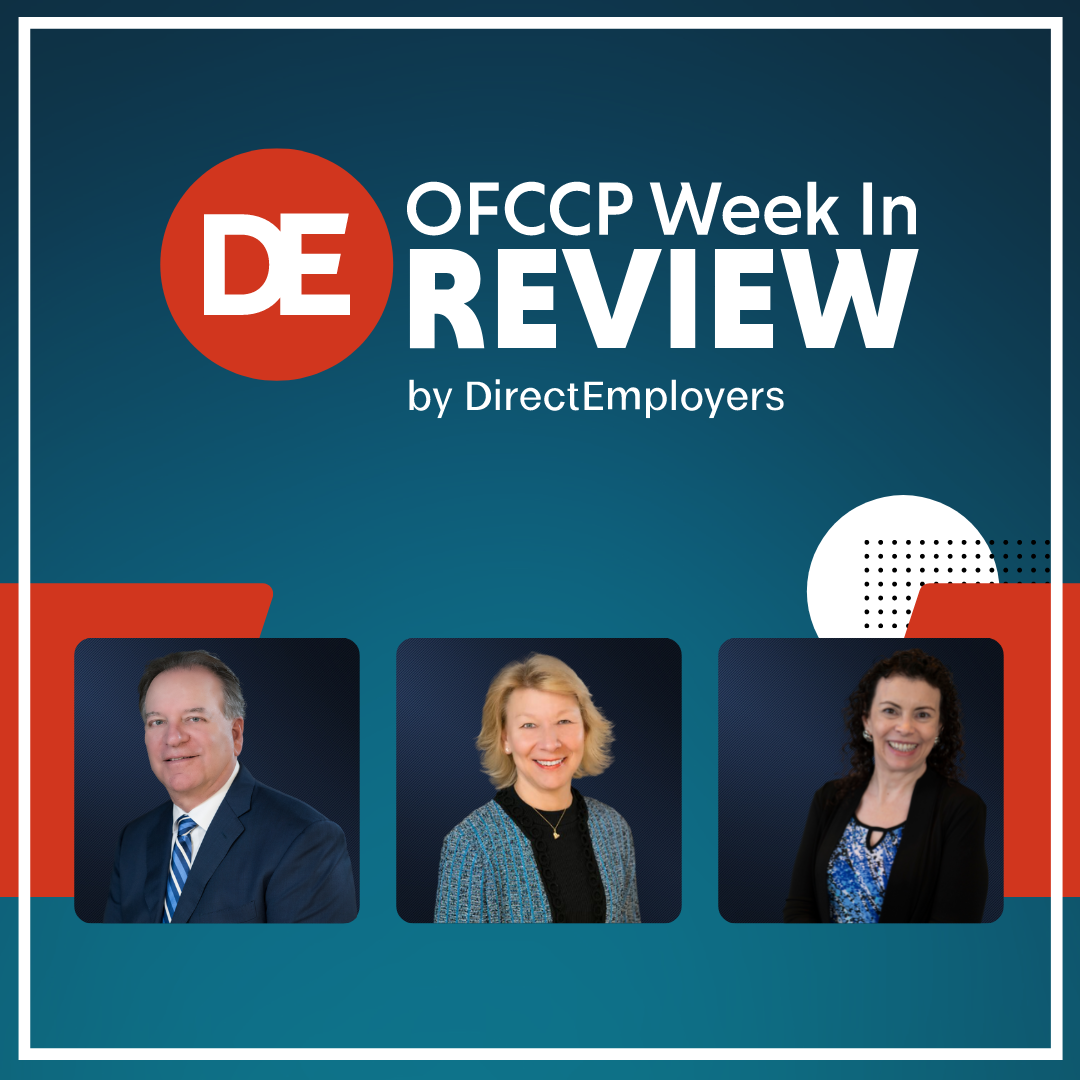 The DE OFCCP Week in Review (WIR) is a simple, fast and direct summary of relevant happenings in the OFCCP regulatory environment, authored by experts John C. Fox, Candee J. Chambers and Cynthia L. Hackerott. In today’s edition, they discuss:
The DE OFCCP Week in Review (WIR) is a simple, fast and direct summary of relevant happenings in the OFCCP regulatory environment, authored by experts John C. Fox, Candee J. Chambers and Cynthia L. Hackerott. In today’s edition, they discuss:
- OFCCP Released the First 20,000 EEO-1 Files to The Public
- OFCCP’s Modified Proposal to Revise Scheduling Letter & Itemized Listing Revealed Via Newly Posted Documents
- Ninth Circuit Became First Court of Appeals to Rule for Biden Administration’s Federal Contractor Vaccine Mandate
- House & Senate Democrats Reintroduced “Do No Harm Act”
- Julie Su in the “Hotseat” During Senate HELP Committee Hearing
- U.S. NLRB Detailed Expansive Potential Remedies for Repeat or Egregious Violations
- In Brief
- Looking Ahead: Upcoming Date Reminders
Monday, April 17, 2023: OFCCP Released the First 20,000 EEO-1 Files to The Public
EXCLUSIVE: OFCCP Has Also Proposed A Schedule To Resolve Contractor Objections To Disclosure
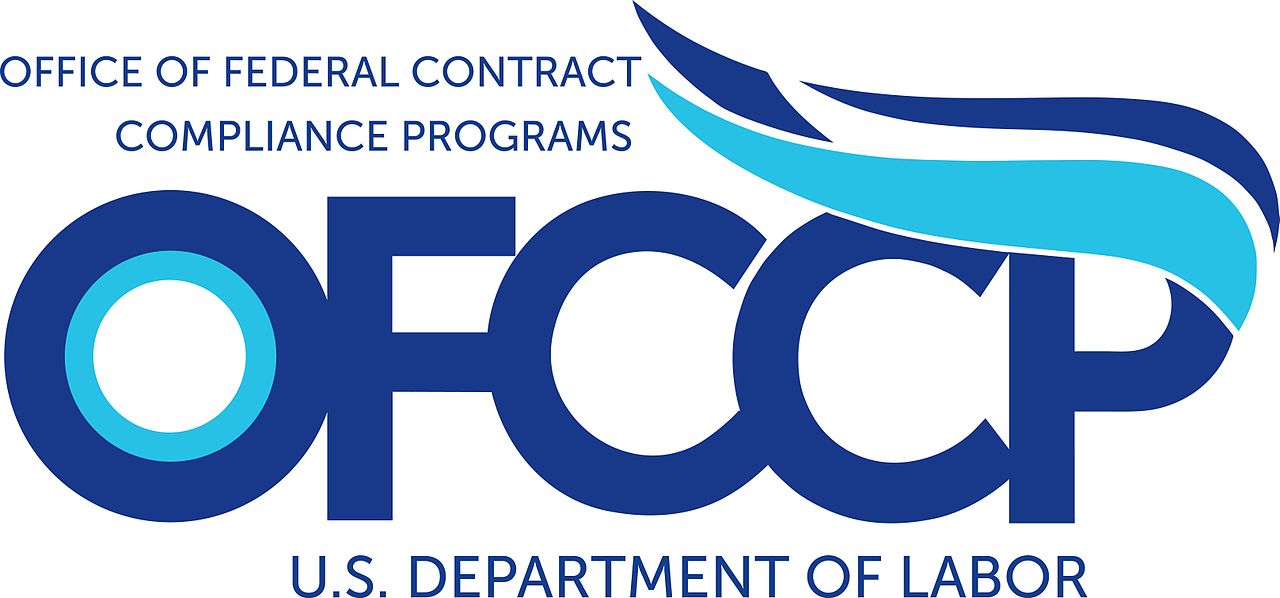
Frustrated with OFCCP’s slow response to its FOIA request, CIR then filed suit in the U.S. District Court for the Northern District of California in November 2022 seeking an order compelling production of the EEO-1 Report data (as we summarized here). The litigation then forced repeated attempts by OFCCP to provide notice to contractors of their right to object and of OFCCP’s potential disclosure of their EEO-1 Reports responsive to CIR’s FOIA request (as we discussed here, here, and here).
OFCCP last week produced the EEO-1s to CIR in two sets, as noted on OFCCP’s FOIA Library page. The first set OFCCP disclosed was a partial release of consolidated Type 2 EEO-1 data for years 2016 through 2020 for those 21 contractors that affirmatively consented to OFCCP’s release of their EEO-1 data. The second set was a partial release of consolidated Type 2 EEO-1 data for years 2016 through 2020 for 19,289 entities that either did not file an objection with OFCCP (19,277 contractors) or voluntarily confirmed they had no objection.
OFCCP Has Now Proposed A Schedule To Resolve The Outstanding Contractor Objections To OFCCP’s Proposed Disclosure
As to those contractors that objected to OFCCP’s proposed disclosure of their EEO-1 files, OFCCP has now embarked upon the task to individually review each objection to determine its validity. In this collection of contractors are those that based their objection on one or more exceptions to otherwise required disclosure under the FOIA or asserted that the entities were not federal contractors during the 2016-2020 reporting years.
Fortunately for contractors that submitted objections to production of EEO-1 Reports to CIR, we now have a roadmap as to when OFCCP proposes to make determinations on the outstanding contractor objections. Following the April 13, 2023, initial Case Management Conference in the CIR litigation, the U.S. Department of Justice (“DOJ”), as counsel for the U.S. Department of Labor (“DOL”) in the pending CIR litigation, submitted a Stipulated Briefing Schedule to the court. In the Proposed Briefing Schedule, counsel for both parties noted:
- DOL was in the process of confirming the federal contractor status of 360 companies that submitted claims that they were not federal contractors subject to production of their EEO-1 data. DOL intends to complete its determination of their contractor status by May 5, 2023, with notice provided to those companies DOL determines are federal contractors so they may submit further objections.
- DOL has received objections from 4,365 unique federal contractors related to production (encompassing 16,908 EEO-1 Reports from 2016 to 2020). DOL anticipates completing its evaluation of these objections by July 21, 2023, at which time DOL will release to CIR by July 28, 2023, a list of EEO-1 Reports the agency further proposes to continue to withhold from disclosure under one or more FOIA exemptions. DOL will make a final determination as to all remaining reports by the end of September 2023.
- As to the litigation, the parties will meet and confer regarding DOL’s selection of exemplar EEO-1 reports subject to withholding for a USDOL/OFCCP potential Summary Judgment Motion. The proposed briefing schedule as to any USDOL/OFCCP Motion for Summary Judgment to withhold production of certain types of EEO-1 Reports is as follows:
- DOL’s Motion for Summary Judgment to be filed by August 4, 2023;
- Plaintiff’s Cross-Motion and Opposition to DOL’s Motion to be filed by October 5, 2023;
- DOL’s Opposition to any Cross-Motion and Reply in support of its Motion for Summary Judgment to be filed by November 2, 2023;
- Plaintiff’s Reply in support of its Cross-Motion (if any) to be filed by November 22, 2023; and
- Hearing on the Motions to be held on December 14, 2023.
Considering the foregoing timeline, objectors should calendar the relevant dates to ensure they receive notice of any determination made as to the validity of their objections. Should OFCCP determine a contractor’s objections are invalid, such contractors will need to file suit to seek judicial intervention to any production. Otherwise, rejected objectors will find themselves in the position of those entities that failed to object and now have their 2016 through 2020 Type 2 consolidated EEO-1 Report in the hands of CIR.
Tuesday, April 18, 2023: OFCCP’s Modified Proposal to Revise Scheduling Letter & Itemized Listing Revealed Via Newly Posted Documents
Explanatory Documents Not Posted Until Day After Federal Register Notice
Changes to Initial Proposal Minimal
Estimated Burden Hours Reduced: Still Far Too Low Relative To Reality

Significantly, OFCCP is NOT yet implementing its proposed audit Scheduling Letter and Itemized Listing. Rather, the agency simply tweaked its November 2022 proposal, has published the newly revised audit Scheduling Letter and Itemized Listing and now seeks comments on the agency’s new proposal. Public comments on the newly modified proposal are due on or before May 17, 2023, and may be submitted here or here.
Comment Again?
While the law is bit uncertain whether those companies and institutions that previously commented in response to OFCCP’s November 2022 proposed audit Scheduling Letter MUST file fresh comments, contractors are best advised to assume the worst case. Contractor might either send in a letter in response to OFCCP’s new proposals or should at least put a fresh letter on file with OFCCP and OMB stating that the Commenter reaffirms its earlier-filed Comments. And, it will be especially important for contractors to make clear in their new comments which portions of their old comments remain viable following OFCCP’s changes to its first proposal. Remember: you are building a trial record for a reviewing court: if the court is unclear whether OFCCP addressed your prior comment with the agency’s new changes, the Court will be unable to credit and rely upon your comment. You need to create a record of which (or all) of your comments continue to survive despite OFCCP’s changes to its initial proposals. Uncertainty and ambiguity works to your disadvantage: make it clear which of your comments you want a reviewing court to consider despite OFCCP’s changes.
OFCCP submitted both its initial and modified proposals in conjunction with its request for the White House Office of Management and Budget’s (“OMB”) approval to continue its information collection requirements (“ICRs”) for Supply and Service Contractors pursuant to the federal Paperwork Reduction Act (“PDA”). OMB’s current approval for these ICRs expires on April 30, 2023.
However, it is now apparent that OMB will not be able to address OFCCP’s new proposal prior to May 18 after the public has had an opportunity to file comments with OMB about this new proposal. The May 17, 2023 date is over two weeks AFTER OMB’s approval of the current audit Scheduling Letter and Itemized Listing expires on April 30. In cases like this where an existing OMB data collection approval times out before OMB may either renew the existing collection request or approve a new one, OMB typically approves extensions in 30-day segments. That is what will happen here: OMB will undoubtedly extend the current ICR approving OFCCP’s use of its current audit Scheduling Letter and Itemized Listing for another 30 days…from April 30, 2023, to and through May 30, 2023.
What Exactly Changed in OFCCP’s Modified Proposal?
Like its notice in November, OFCCP’s April 17 Federal Register notice itself contained no new substantive information other than the reference to the November notice and that there would be a new 30-day comment period. The substance of the modified proposal is disclosed via a new Supporting Statement and the modified proposed Scheduling Letter and Itemized Listing documents.
The differences between the initial proposal and the newly modified proposal are as follows:
Electronic submission. OFCCP is sticking to the provision in its initial proposal that would require contractors to submit their responses in electronic form to OFCCP audit Scheduling Letters and to its ATTACHED Itemized Listing. Noting that one commenter expressed concern regarding confidentiality, OFCCP stated that it “has several safeguards in place to ensure that its email system is secure, including ensuring that all employees access the network using a Personal Identity Verification card.” Contractors may also submit data and documents to OFCCP using the Department’s secure file-sharing system known as Kiteworks. [See pages 13-14 of the April Supporting Statement]
OFCCP walked back a few of its proposed information and data demands. The agency made a few modifications to the initial notice’s provisions regarding the Itemized Listing information/data/document demands.
First, in November, OFCCP proposed adding a new item (numbered as a new Item 7 in the Itemized Listing) requesting a list identifying all action-oriented programs designed to correct any problem areas identified pursuant to 41 CFR § 60-2.17(b). OFCCP modified the proposal to instead require contractors to provide the list OR documents demonstrating the “development and execution” of action-oriented programs. [April Supporting Statement, pages 17-18]
Second, under the modified proposal (at Itemized Listing Item 20(c) in the November Notice/Renumbered to Item 18(c) in the April Notice), contractors will not be required to identify whether a promotion is “competitive” or “non-competitive.” OFCCP also removed the requirement that for each promotion, contractors identify the previous supervisor, current supervisor, previous compensation, current compensation, department, job group, and job title from which and to which individuals were promoted. [April Supporting Statement, pages 25-26]
Third, regarding terminations, OFCCP removed the proposed requirement (at Itemized Listing Item 20(d) in the November Notice/Renumbered to Item 18(d) in the April notice) that contractors provide the reason for each termination. [April Supporting Statement, pages 26-27]
Burden hours reduced. While a legion of stakeholder comments requested OFCCP reevaluate its initial estimate of 39 hours to respond to the proposed Scheduling Letter and Itemized Listing, the agency instead doubled down and reduced its burden estimate from 39 hours to only 37.5. The rationale cited by OFCCP for this reduction was the changes to a few of the initial proposals’ information/data/document demands. Moreover, OFCCP wrote:
“The agency declines to make additional changes to the time burden estimates for contractors. OFCCP acknowledges that the precise amount of time each contractor will take to develop and maintain AAPs and respond to the scheduling letter is difficult to estimate, as contractors vary in terms of resources and procedures. To estimate the burden, the agency uses weighted averages to account for contractors of different sizes. The agency provides different burden estimates for contractors with 50 – 100 employees, 101 – 150 employees, 151 – 500 employees, and 501 or more employees and then uses a weighted average across all four groups. The burden estimates detailed below are based on these averages (see burden calculations below).”
[April Supporting Statement, page 40]
How We Got Here
We reported last week that OFCCP published a new notice on Monday, April 17 in the Federal Register referencing its earlier November 2022 notice of its initial proposal. However, it was not until the following day (Tuesday) that a new Supporting Statement and the modified proposed Scheduling Letter and Itemized Listing – both submitted on April 10, 2023 – popped up on the White House Office of Management and Budget’s (“OMB”) RegInfo.gov website.
As we previously reported in detail the day OFCCP published the November notice, OFCCP’s initial proposal included significant changes to the agency’s Scheduling Letter and Itemized Listing – including five new items (see the November 2022 version of the proposed revised Scheduling Letter and Itemized Listing here). However, the Federal Register notice itself provided no substantive details on OFCCP’s proposed changes, or why the agency was now changing its November 2022 proposal.
Rather, OFCCP only revealed the substantive details of its new proposal in its 31-page Supporting Statement. The public comment period for the November 21, 2022, notice closed on Tuesday, January 20, 2023. DirectEmployers Association filed extensive and detailed comments on behalf of its member companies. Forty-seven other entities also filed comments. We discussed those comments in our story here.
Wednesday, April 19, 2023: Ninth Circuit Became First Court of Appeals to Rule for Biden Administration’s Federal Contractor Vaccine Mandate
Decision Unlikely to Result in Change in Current Enforcement Stance
Federal Contractor Affirmative Action Decisions Cited in Support of Federal Procurement Act Authorizing Broad Presidential Power Over Contractors
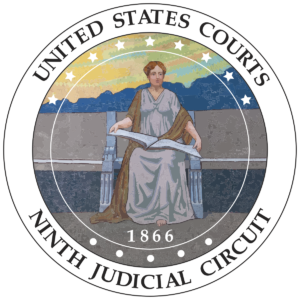
On Thursday, a three-judge panel of the Ninth Circuit Court of Appeals (San Francisco) ruled in favor of Executive Order 14042 and the Biden Administration’s COVID-19 vaccine requirement for federal contractors as it applied in Arizona. Specifically, the Ninth Circuit reversed the U.S. District Court for Arizona’s permanent injunction enjoining the federal contractor mandate in Arizona. The Court found that the plaintiffs challenging the mandate had failed to establish a substantial likelihood of success on the merits.
However, the Ninth Circuit’s ruling did not alter the fact that the vaccine mandate remains enjoined in 24 other states. That reality, plus the fact that the President Biden has now declared the COVID-19 health emergency to have ended and has ordered the Office of Management and Budget to no longer enforce vaccination mandates, is unlikely to alter the current postponed status of the federal contractor vaccine mandate. (It is not clear to us why the opponents of the contractor vaccination mandate did not move to dismiss their lawsuit as moot).
The prior decision, which we previously discussed here, had found Executive Order 14042 to be an unfettered expansion of presidential authority beyond the authority laid out by Congress in federal procurement laws. In rejecting that argument, the Ninth Circuit panel held that the “major questions” doctrine the lower court had seized upon to enjoin the vaccine mandate was inapplicable to the case at hand.
Note: The “major questions” doctrine is an offshoot of the “non-delegation doctrine” (a notion that the Congress did not delegate to federal agencies the authority to interpret certain especially important statutes of the Congress). That “major questions” doctrine holds that federal courts should not defer to federal agency interpretations of federal statutes when legal questions arise of “vast economic or political significance.”
First, the Ninth Circuit panel held that the Federal Procurement Act delegated to the President the authority to prescribe policies and directives necessary to provide the Federal Government with an economical and efficient procurement system. Since the “major questions” doctrine relates to federal agency decisions, it was inapplicable since this was an action by the President pursuant to the President’s lawfully delegated power to prescribe such policies and directives.
Second, even if the “major questions” doctrine did apply to presidential actions, it would not warrant enjoining the federal contractor vaccine mandate for two reasons. Initially, the Ninth Circuit found the mandate was not an exercise of regulatory authority at all, but of proprietary authority.
Additionally, the Ninth Circuit found that the vaccine mandate was not a “transformative expansion of regulatory authority” prohibited by the “major questions” doctrine. Rather, the Ninth Circuit relied on historical precedent where past presidents had used the Federal Procurement Act to impose anti-discrimination and affirmative action requirements, as well as to require compliance with wage-hour, immigration, and labor laws. As such, the Ninth Circuit found the vaccine mandate squarely fell within the President’s authority under the Federal Procurement Act.
Finally, the Ninth Circuit affirmed the lower court’s rejection of the plaintiffs’ challenges to the Biden Administration’s compliance with the Federal Procurement Act’s procedural requirements. The Ninth Circuit held that the Safer Federal Workforce Task Force President Biden had tasked to provide guidelines to implement the vaccine mandate was not a specifically enumerated “Executive Branch agency” required to comply with the procedural requirements of the Federal Procurement Act. Furthermore, any guidance from the Safer Federal Workforce Task Force would have no standalone legal force but would be binding only after the Office of Management and Budget (“OMB”) Director issued an economy and efficiency determination that properly waived the notice-and-comment requirements due to urgent and compelling circumstances considering the COVID-19 national pandemic.
While the Biden Administration may take comfort in finally achieving success in one of the many court challenges against its federal contractor vaccine mandate, the ruling is unlikely to result in enforcement at this time. As we noted in October 2022 following the Eleventh Circuit Court of Appeals’ decision to narrow a previously issued nationwide injunction, the Safer Federal Workforce Task Force and the OMB instructed agencies not to take any steps to require compliance with the vaccine mandate or enforce any contract clauses implementing the vaccine mandate. This ruling, which only impacts the injunction issued as to the state of Arizona, does not alter the piecemeal status of validity the vaccine mandate currently holds. Additionally, with the Biden Administration’s signing of a law ending the national COVID-19 emergency just two weeks ago, it is unlikely the nation has the appetite for renewed enforcement of the federal contractor vaccine mandate.
Wednesday, April 19, 2023: House & Senate Democrats Reintroduced “Do No Harm Act”
Bill Would Limit Use of RFRA in Certain Civil Rights Cases
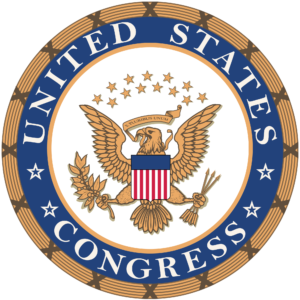
According to the legislators, the bill’s reintroduction “comes amid a sharp rise in the misapplication of RFRA to justify discrimination in a wide range of scenarios.” They continued:
“The Supreme Court’s 2014 decision in Burwell v. Hobby Lobby Stores, Inc. [573 U.S. 682] permitted corporations to rely on RFRA to deny certain health care services to employees. [T]he Court’s 2020 decision in Bostock v. Clayton County [140 S. Ct. 1731] indicated RFRA could be a “super statute” that supersedes protections against employment discrimination under the Civil Rights Act of 1964. Last year, a [U.S.] District Court judge in Texas ruled that the Affordable Care Act’s requirement that employers cover HIV-prevention medication, known as PrEP drugs, violates RFRA.” [See Braidwood Management Inc v. Becerra, N.D. Texas, Fort Worth Division, Civil Action No. 4:20-cv-00283-O, September 7, 2022 ruling and March 30, 2023 ruling, extending the application of the 2022 ruling nationwide. The Biden Administration has appealed the rulings to the Fifth Circuit Court of Appeals.]
The legislation is sponsored by House Committee on Education and the Workforce Ranking Member Bobby Scott (D-VA), senior Judiciary Committee member Representative Steve Cohen (D-TN), House Committee on Oversight and Accountability Ranking Member Jamie Raskin (D-MD), House Subcommittee on the Constitution and Limited Government Ranking Member Mary Gay Scanlon (D-PA), and Senator Cory Booker (D-NJ). The lawmakers also posted a “Fact Sheet” and a Section-by-Section Summary of the bill.
Of course, there is little chance the House would pass this bill. However, with a Presidential election now only 18 months away, the Congress has entered the usual pre-election phase known for “political posturing.” We will in the coming year observe many bills being introduced in both Houses of Congress with little or no likelihood of passage with the sole intent to allow each party and sponsoring House and Senate Members to “box in” the position of opponents or supply “talking points” for the coming political campaigns.
Last month, John Fox discussed in detail the “Collision of Rights” conundrum – with a specific focus on OFCCP enforcement – in a WIR Bonus Blog, “In a Courageous Political Act of Folly, The Biden White House Ordered OFCCP to Publish Its Final Rule Rescinding Trump’s Religious Exemption.” See also, our reports on a few recent RFRA-related court decisions here, here, and here.
Thursday, April 20, 2023: Julie Su in the “Hotseat” During Senate HELP Committee Hearing
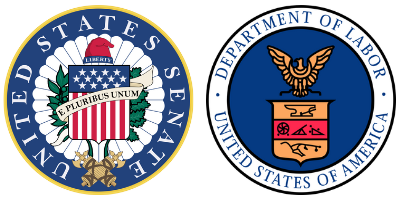
The HELP Committee will vote on the nomination on Wednesday, April 26. Even if Ms. Su prevails in the Committee vote, her confirmation is not secure because four key Senate Democrats have not committed to how they will vote on her nomination. In addition, with no firm date for Senator Dianne Feinstein (D-CA) to return to the U.S. Senate from her home in San Francisco where she is recuperating from shingles and short-term memory loss, the Democrats are currently down five Democrat votes in favor of Ms. Su’s nomination.
NOTE: Remote voting is not permitted in the U.S. Senate. A Senator must be on the floor of the U.S. Senate for her vote to count on any matter before the Senate. With only a two-vote margin in the Senate (49 Republicans; 48 Democrats and 3 Independents who caucus with the Democrats), Democrats can afford to lose only one Democrat vote but not two to achieve a 50-50 tie. NOTE: The President needs only a “majority” of the sitting Members of the U.S. Senate (currently 100) to confirm one of his nominees. Were one Democrat Senator not to vote for Ms. Su’s nomination (either by voting against or abstaining from the vote) a 50-50 tie would ensue. In that case, Vice President Kamala Harris would have the right to cast the “tie-breaker vote” in her capacity as the President of the U.S. Senate and Acting Secretary Su would be confirmed 51-50 to be the next Secretary of Labor.
The President will be doing a lot of “arm wrestling” this week with the four Democrat holdouts and a lot of “pork” could fly to get the votes needed in the next two days. Moreover, the Julie Su vote is a “make or break” vote for the President: a bellwether on the President’s influence within the Democrat Party. If he cannot sway Democrats to back a mere 50-50 nomination vote for a person he would like to make a senior manager in his Presidential Cabinet to advise him, what chance does the President have to pass controversial legislation requiring 60 votes?
How We Got Here
President Biden previously successfully nominated Ms. Su to serve as the Deputy Secretary of Labor reporting to Secretary of Labor Marty Walsh. Ms. Su has also been serving as the “Acting Secretary of Labor” since former Labor Secretary Walsh left the Department of Labor last month. Ms. Su and her supporters spent a good deal of the hearing seeking to tie her to Walsh, with Ms. Su repeatedly referencing her work alongside him. President Biden had asked her to “finish the job that Secretary Walsh and [she] started,” she testified. Secretary Walsh was popular with mainline Democrat Senators.
The HELP Committee posted a video of the full hearing, which ran just short of two and a half hours. A link to Acting Secretary Su’s written testimony is here. A video clip of Secretary Su’s opening statement is here.
Following the hearing, the White House posted a collection of statements by assorted lawmakers and advocacy groups (primarily unions) supporting her nomination. In contrast, the Republicans on the HELP Committee tweeted a thread with their take on the background of “overwhelming unemployment fraud in California” when Ms. Su helmed the state’s Labor Department. Senator Bill Cassidy (R-LA), Ranking Republican on the HELP Committee also posted his remarks at the hearing in opposition to the nomination.
Meanwhile, various other Senators and advocacy groups also tweeted out video clip highlights of the hearing. Among those not included in the links above are:
- Senator Romney (R-UT) tweeted a video clip of his pointed questioning of Ms. Su. “Julie Su not only lacks the experience and competency to serve as Secretary of Labor, but she carries a record of gross mismanagement of taxpayer dollars,” the Senator charged in the text of his tweet. “Under her watch, California sent out $31 billion in fraudulent unemployment benefits! Her nomination makes no sense at all,” he continued;
- Senator Ted Budd (R-NC) asserted that Ms. Su “is hostile to part time gig workers,” and “supports forcing unionization on workers”;
- “If you’ve never been an employer, balanced a budget, or signed both sides of a paycheck, you have no business being the next Secretary of Labor,” Senator Markwayne Mullin (R-OK) tweeted; and
- Senator Mike Braun (R-IN) expressed concern with Ms. Su’s views on franchisee/franchisor agreements.
Thursday, April 20, 2023: U.S. NLRB Detailed Expansive Potential Remedies for Repeat or Egregious Violations
Remedies Include Broader Publication of Rights Notice, Reimbursing Unions
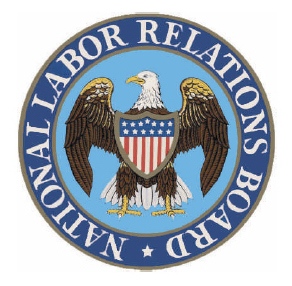
“Broad” cease-and-desist orders are traditionally issued in cases where the employer has shown a proclivity to violate the NLRA or has engaged in egregious or widespread misconduct, the Board explained in a press statement. Here, the Board ruled, 2-1, that when the unfair labor practice violations found in a case justify a broad cease-and-desist order, in addition to that cease-and-desist order, the Board should consider a non-exhaustive list of additional potential remedies, depending on the circumstances of the case, and apply some or all those remedies.
These remedies (discussed on pages 5- 13 of the decision) may include:
- adding an Explanation of Rights to the remedial order that informs employees of their rights “in a more comprehensive manner;”
- requiring a reading and distribution of the Notice and any Explanation of Rights to employees, including potentially requiring supervisors or officials involved in the violations to participate in or be present for the reading and/or allowing the presence of a union agent during the reading;
- mailing notices of violations and explanations of rights to employees’ homes;
- requiring a person who bears significant responsibility in the employer’s organization to sign the Notice;
- publishing notices in local media outlets;
- requiring that violation notices be posted in workplaces for an extended period of time;
- a visitation requirement, permitting representatives of the Board to inspect the employer’s bulletin boards and records to determine and secure compliance with the Board’s order; and
- reimbursing union expenses for collective bargaining. including making whole any employees who lost wages by attending bargaining sessions not conducted in good faith.
Board Members Agreed on Violations Finding, But Kaplan Dissented on Remedies
The NLRB ruled unanimously that the employer violated the NLRA by failing to bargain in good faith with its workers’ union. They also all agreed that a broad cease-and-desist order was warranted because the Board had previously found the employer violated the NLRA, and, in 2019, a U.S. District Court found the employer in contempt of its injunction ordering it to bargain in good faith. Moreover, they all agreed on ordering the employer to reimburse the Union for its bargaining expenses and to read a specified remedial notice to its employees. In addition to affirming a May 27, 2021, order by Administrative Law Judge (ALJ) Robert A. Ringler, the Board majority modified some of the ALJ’s remedies and went on to order multiple remedies beyond what the ALJ had provided.
However, the Board’s sole Republican member, Marvin Kaplan, issued a partial dissent. First, he noted how his versions of the reimbursement and remedial notice remedies differed from theirs. Further, he stated that the Board should have stopped at ruling on the violations as alleged and ordering some extraordinary remedies. He objected to the majority – Chair McFerran and Member David M. Prouty – using the case “not only to order numerous additional extraordinary remedies [in the case at hand] but also to engage in an extended discussion of extraordinary remedies in general.”
In Kaplan’s view, “the majority’s treatise on extraordinary remedies does not change Board law.” Rather, “[m]y colleagues are [inappropriately] advising the [NLRB] General Counsel regarding extraordinary remedies she might seek in future cases and (implicitly but unmistakably) even encouraging her to seek them. And by making broad cease-and-desist orders the predicate for these extraordinary remedies, the majority’s opinion also tacitly encourages the General Counsel to seek broad orders more frequently in order to put those remedies in play,” Kaplan wrote.
In Brief
Wednesday, April 19, 2023: The Public Submitted over 18,890 Comments on U.S. FTC Non-Compete Ban Proposal
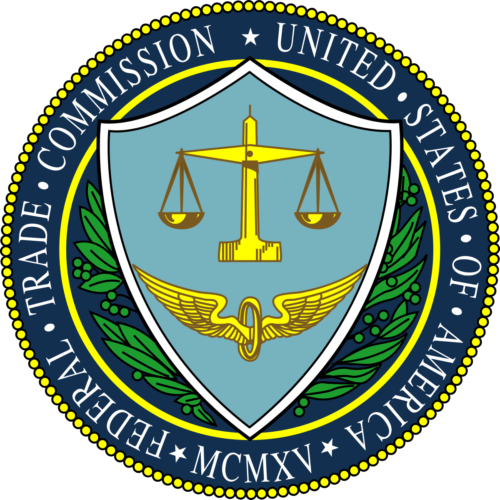
When the FTC first published its proposal in January, we discussed its provisions here. See also our related content here, here, and here.
Thursday, April 20, 2023: Reminder – HIRE Vets Medallion Award Applications Due April 30

Employers of all sizes are eligible. The criteria for the 2023 award cycle are available here. Learn more and apply online at HIREVets.gov. Award recipients will receive a certificate and digital images of the medallion for use as part of their marketing and promotional activities.
DEAMcon23 Recap – Day One
Two weeks ago, we were in Chicago for DirectEmployers 2023 Annual Meeting & Conference (DEAMcon23), and it was certainly an event we won’t soon forget. Check out part one of our recap, highlighting each session from Day One, and stay tuned next week for part two as we detail more great sessions and another inspirational keynote.
Looking Ahead:
Upcoming Date Reminders
December 2022: U.S. DOL WHD’s (now overdue) target date to publish a Notice of Proposed Rulemaking to Analyze Public Comments on its proposed rule regarding Nondisplacement of Qualified Workers Under Service Contracts (RIN: 1235-AA42)
December 2022: U.S. OSHA’s (now overdue) target date to publish its Final Rule on Occupational Exposure to COVID-19 in Healthcare Settings (RIN: 1218-AD36) (OSHA submitted this Final Rule to OMB on December 7, 2022)
December 2022: U.S. DOL’s OASAM’s (now overdue) target date to publish Proposed Rule on “Revision of the Regulations Implementing Section 188 of the Workforce Innovation and Opportunity Act (WIOA) to Clarify Nondiscrimination and Equal Opportunity Requirements and Obligations Related to Sex” (RIN: 1291-AA44)
February 2023: U.S. DOL WHD’s (now overdue) target date for its Final Rule on Updating the Davis-Bacon and Related Acts Regulations (RIN: 1235-AA40)
March 2023: OFCCP’s (now overdue) target date for its Notice of Proposed Rulemaking to Require Reporting of Subcontractors (RIN: 1250-AA15)
March 2023: OFCCP’s (now overdue) target date for its Final Rule on Pre-Enforcement Notice & Conciliation Procedures (RIN: 1250-AA14)
March 2023: OFCCP’s (now overdue) target date for its Final Rule on “Technical Amendments” to Update Jurisdictional Thresholds & Remove Gender Assumptive Pronouns (RIN: 1250-AA16)
April 2023: OFCCP’s target date for its Notice of Proposed Rulemaking to “Modernize” Supply & Service Contractor Regulations (RIN: 1250-AA13)
Monday, April 24, 2023: Comments due on USDOL Wage & Hour Division’s Proposal to Revise Existing WD-10 Form for Federal Construction Contractors–https://www.regulations.gov/commenton/DOL_FRDOC_0001-2065
Thursday, April 27, 2023: Comments due on the Office of Management & Budget’s “Initial Proposals for Updating Race and Ethnicity Statistical Standards” (previous April 12 deadline extended) – https://www.regulations.gov/commenton/OMB-2023-0001-0001
Friday, April 28, 2023: Deadline for nominations to OMB of experts to peer review draft revisions of Circular A-4 – email nominations to MBX.OMB.OIRA.A4PeerReview@omb.eop.gov (subject line: Peer Review Nomination for Updating Circular A–4)
Sunday, April 30, 2023: Deadline to apply for 2023 HIRE Vets Medallion Award Program – https://www.hirevets.gov/
May 2023: U.S. DOL WHD’s target date for its Notice of Proposed Rulemaking on Defining and Delimiting the Exemptions for Executive, Administrative, Professional, Outside Sales and Computer Employees (RIN: 1235-AA39)
May 2023: U.S. DOL WHD’s target date for its Final Rule on Employee or Independent Contractor Classification Under the Fair Labor Standards Act (RIN: 1235-AA43)
Tuesday, May 9, 2023: Public comment deadline on FTC’s “Request for Information” on franchise agreements and franchisor business practices – https://www.regulations.gov/commenton/FTC-2023-0026-0001
Wednesday, May 17, 2023: Deadline to submit comments on OFCCP’s Modifications to Its Proposed Changes to Its Supply & Service Contractor Scheduling Letter & Itemized Listing – https://www.regulations.gov/commenton/DOL_FRDOC_0001-2080
Tuesday, June 6, 2023: Comments due on Proposed OMB Circular No. A-4, “Regulatory Analysis” – https://www.regulations.gov/commenton/OMB_FRDOC_0001-0337
Tuesday, June 6, 2023: Deadline for comments due on proposed revisions to OMB Circular A-94 (Guidelines and Discount Rates for Benefit-Cost Analysis of Federal Programs) – https://www.regulations.gov/commenton/OMB-2023-0011-0001
Tuesday, June 6, 2023: Comments due on OMB’s implementation of Section 2(e) of the “Modernizing Regulatory Review” E.O. – https://www.regulations.gov/commenton/OMB_FRDOC_0001-0333
Thursday, June 29, 2023: Deadline for covered federal contractors and subcontractors to certify, via OFCCP’s online Contractor Portal, that they have developed and maintained affirmative action programs for each establishment or functional unit – https://www.dol.gov/newsroom/releases/ofccp/ofccp20230320
August 2023: U.S. NLRB’s target date for its Final Rule on Standard for Determining Joint-Employer Status (under the NLRA) (RIN: 3142-AA21)
August 2023: U.S. NLRB’s target date for its Final Election Protection Rule (RIN: 3142-AA22)
Friday, August 11, 2023: Deadline for Presenter Proposal Submissions for DEAMcon 2024 (New Orleans) – https://deamcon.org/call-for-presenters/
Wednesday, April 3 – Friday, April 5, 2023: DEAMcon24 New Orleans
THIS COLUMN IS MEANT TO ASSIST IN A GENERAL UNDERSTANDING OF THE CURRENT LAW AND PRACTICE RELATING TO OFCCP. IT IS NOT TO BE REGARDED AS LEGAL ADVICE. COMPANIES OR INDIVIDUALS WITH PARTICULAR QUESTIONS SHOULD SEEK ADVICE OF COUNSEL.
SUBSCRIBE.
Compliance Alerts
Compliance Tips
Week In Review (WIR)
Subscribe to receive alerts, news and updates on all things related to OFCCP compliance as it applies to federal contractors.
OFCCP Compliance Text Alerts
Get OFCCP compliance alerts on your cell phone. Text the word compliance to 55678 and confirm your subscription. Provider message and data rates may apply.

